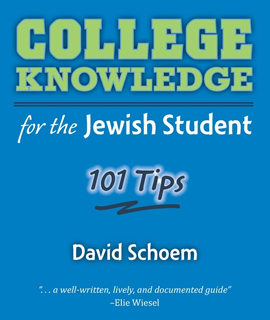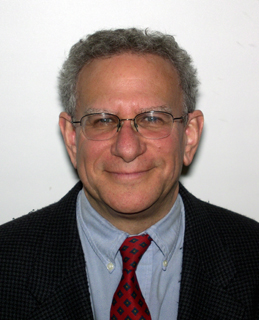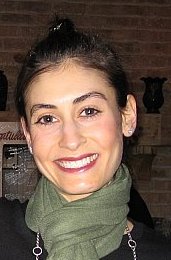Emily Briskman is my hero
Permanent linkEmily Briskman sits down the hall from me at work. Like me, she has Cheerios every day for breakfast and unlike me, she is always cheerful, stylish and put together. For these reasons alone, Emily is my hero…and others agree.
Emily was recently nominated as a Jewish community hero in the Jewish Federations of North America’s (JFNA) Second Annual Jewish Community Hero’s event.
At just 28, Emily has shaped two landmark initiatives to effectively advocate for Israel on college campuses with few Jews and no Hillels. She’s launched a pilot program, Reach Across Illinois Campuses for Israel (RAIC) — the first of its kind in North America— from the ground up. Reaching out to 10 campuses throughout Illinois, Emily works to build strong inroads and relationships with non-Jewish administrators, professors and students who otherwise wouldn't have the resources or exposure to Israel, beyond what they see in the media or hear from their peers.
Recently, Emily agreed to sit down with me to chat about the nomination and why she’s uniquely qualified to be the Program Director for RAIC. We wanted to go out for drinks somewhere trendy, but limited by our non-profit salaries we opted to just meet in her office over coffee. Even without the fabulous location, Emily looked impeccable—which she credits to her mother.

Super stylish Emily
“My mom has always said if you look good then you will feel good,” says Emily. “I try to look good every day because it makes me feel better, it makes me feel professional and like I’m going somewhere important. I also just really love clothes, especially accessories.”
A Florida native, Emily’s interest in working with and learning about people from different religious backgrounds started at a young age.
“I started attending Catholic school in the second grade,” explains Emily. “It was the best school in the neighborhood and just over the bridge from my house. My parents explained to me that I wasn’t Catholic, but Jewish, and that like taking history classes, it was important to learn about Catholicism and other religions.”
Accustomed to being the minority, it wasn’t until the summer after her freshman year in college that Emily became interested in the Jewish community.
“I was going home and my mom didn’t want me to hang out all summer” says Emily. “My sister had been involved with her Jewish youth group and they sent her a postcard for an internship and so my mom said, ‘Why don’t you apply for it?’ I said, ‘Sure Mom, ok.’ So I applied for it and I got it! My first internship ever was at the Jewish Community Relations Council (JCRC) in Palm Beach County. I spent the summer learning about how JCRC works and writing a handbook for Latino-Jewish cooperation and working with the JCRC staff. The director there was a huge influence on me continuing to work with both the Jewish and the non-Jewish population.”
Flash forward two years, Emily, armed with two more Jewish-oriented internships and a college degree, sent her resume to a head hunter for young Jewish professionals at what is now JFNA.
“The head hunter offered to send my resume across the country,” explains Emily. “It ended up in the hands of Amy Dorevitch in Chicago. She called me and I had a phone interview. The next week she called again and said, ‘We really liked you but you have to come here for an interview. Can you come here tomorrow?’ I got on a plane the next day and had an interview. Within a week, I was moving to Chicago to work as the program director for Hillels around Chicago.”
Today, Emily spends her time looking at programs she can offer to her diverse RAIC campuses— from finding speakers, to closely interacting with school administrators, professors and students to researching and keeping tabs on any anti-Semitism and anti-Israel sentiments on campus— she’s always on-the-go. She says it’s crucial that she serves both the Jewish and non-Jewish populations on every campus to make sure that she’s always their first line of communication so her relationships stay healthy and prosper.
“In terms of Israel, it is going to be [a tough year] combating any anti-Israel sentiment on campus because it is prevalent and it is spreading,” explains Emily. “Students for Justice in Palestine is growing as an organization, so we need to be ready and not only responsive, but proactive. I don’t want to stay on the defense. It’s not an argument, it’s not a war. It’s to be proactive by educating students about Israel and giving them every resource available to make sure that they are aware that we are here for them and that there are hundreds of ways for them to advocate for Israel on their campuses.”
Emily’s greatest career accomplishment to date involved altering a student’s anti-Israel views.
“One of the girls was a volunteer with the ministry [at DePaul]; I knew [she] was becoming the paper editor for the next academic year,” says Emily. “I’d known her from volunteering in the office. I didn’t know that much about her political beliefs. One day I was walking through the student center and I saw her at a Students for Justice in Palestine table handing out flyers. I went up to chat with her just as friends and not as a Hillel professional to find out if she actually knew what she was doing or if she was just there for friends. It turned out to be little bit of both. She wanted to cheer for the underdog— as she saw it. I really wanted her to understand what she was talking about and what she was promoting. I asked her out to lunch and we met a few days later and I told her about Israel, Hillel and what we do to advocate for Israel.”
The girl wanted to know more, so Emily decided to help send her to Israel, where she could experience the country for herself.
“I connected her with the American Jewish Committee— they do a trip [for non-Jews]. I spoke with the director of the program and I said I know this girl who is going to be the editor of DePaul’s paper,” explains Emily. “She applied, got in and went to Israel that summer. She came back more excited than I’d ever seen anyone come back from Israel. It was exciting to see that I changed someone’s life.”
Emily’s making a real difference in the Jewish community, but she remains very humble. Although proud of her nomination, she doesn’t see herself as a hero. Instead, she names her grandfather and her sister as her heroes.
“My grandfather on my mother’s side, Grandpa Lou, was a philanthropist in Troy, NY,” says Emily. “He saw a need in the community and built a dialysis center. He really felt that he wanted to take care of his community and I think that is such a core Jewish value…My other hero is my sister. She has always and will always be my biggest hero. She is two years older than me and she is bold. That’s how I always describe her— eclectic and bold. She’s willing to go after what she wants. She’s the person I look to for advice and to bounce ideas off of. She is the voice in my head who says, ‘do better.’”
Clearly, Emily is doing great.
As of today, Emily has 266 votes, she truly deserves all the support she can get so vote for her— early and often! Click here to learn more about Emily and to cast your vote!


.jpg)





.jpg)



